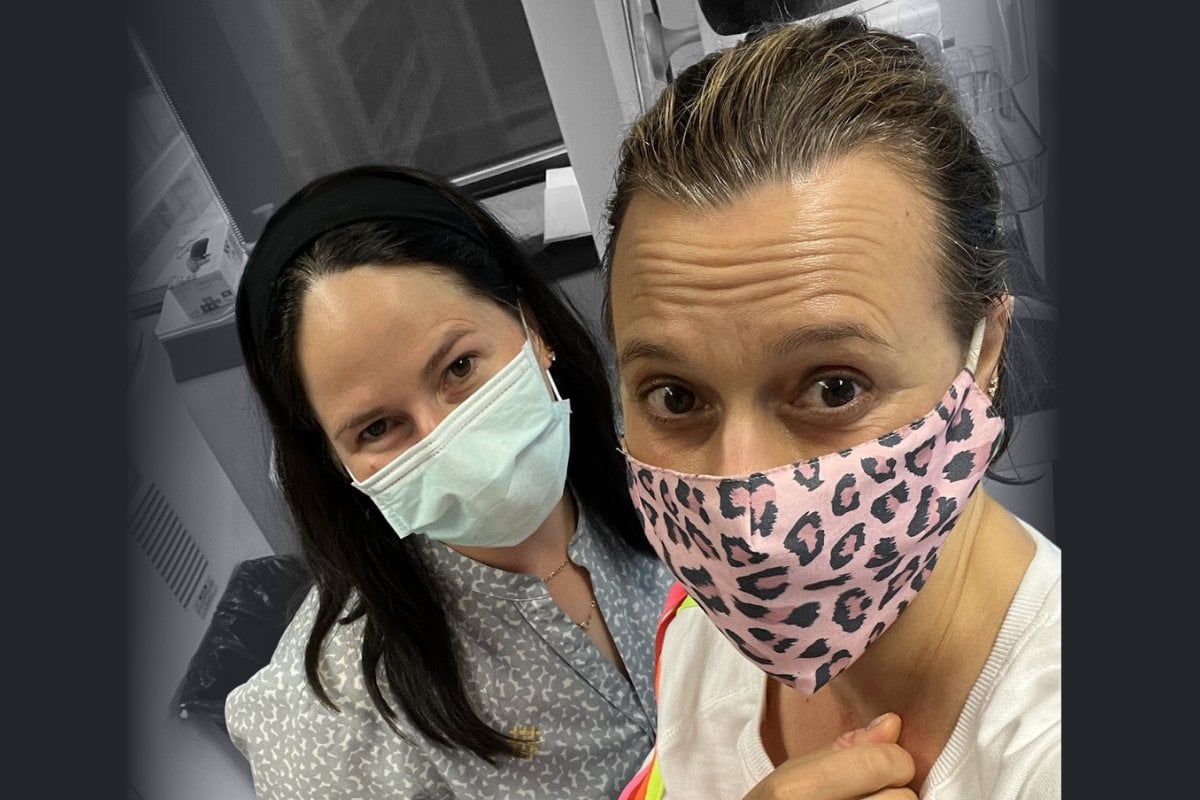
I’m scared of my breasts. Not all the time. Just when I’m thinking about breast cancer. That’s when I feel like I have explosive devices strapped to my chest and I’m just waiting for them to go off, wrecking havoc with my life.
“I just want to get a preventative mastectomy” I’ve announced on more than one occasion when the fear has felt overwhelming. “I just can’t handle feeling like this.”
Watch: How to check your breasts. Post continues below.
I’m not sure if this is normal. I strongly suspect it’s not.
But since being diagnosed with anxiety many years ago and noticing how it often shows up as health anxiety when I’m stressed, I know it doesn’t matter what’s normal.
When you’re terrified of something, you become a little unhinged. Your ability to judge risk and even reality turns into a burning pile of garbage. And no amount of being told to stop being silly makes a jot of difference.
Anxiety is a master gaslighter.
Looking back over difficult periods in my life, I can see how my generalised anxiety will often grab onto specific things and turn an acceptable level of concern into a paralysing tsunami of dread.
It began when I was much younger and one of my parents would be late home from work. Always, I would assume they were dead.
When I was a bit older, I became convinced I had HIV after a deeply unpleasant conversation with an insecure boyfriend who expressed disgust when I told him how many guys I’d slept with. My anxiety has always been a maddening shape-shifter, wrapping its tentacles unpredictably around things I’d once enjoyed. Like flying.
After I had children, for no apparent reason, I developed a gut-wrenching fear of getting on a plane, any plane. I needed to take drugs to even fly domestically. And my life became smaller because of it. I turned down opportunities to travel for work and avoided holidays because of the enormous toll flying would take on me - not just during the flight itself but in the weeks leading up to it.
I never connected these things together though, the belief that my parents were dead, the belief that I had HIV, the belief every plane I was on would crash….. I saw them as separate, unique fears.
And to me, they were fears grounded in reality. People do die in car accidents, planes crash sometimes and people contract HIV during sex. To me, it felt perfectly sane to be terrified of these things happening to me.
It wasn’t until I became convinced I had ovarian cancer after feeling a slight twinge in my side on Christmas Eve which triggered an 11 day panic attack, that I was properly diagnosed. If I hadn’t been on holiday, I think I would have admitted myself to hospital. That’s how unmoored I felt from reality.
The psychiatrist who diagnosed me with Generalised Anxiety Disorder (GAD) was such a lovely man. When he suggested medication and I told him I was worried it might make me worse, he nodded kindly. “I can see that you’re feeling anxious about your anti-anxiety medication,” he said. This made me laugh and the sound of it surprised me.
Over the next few weeks, I started on a very low dose of a drug called Lexapro and worked my way up to a dose that eliminated my anxiety. It didn’t happen overnight but one day I realised that the feeling of dread was gone.
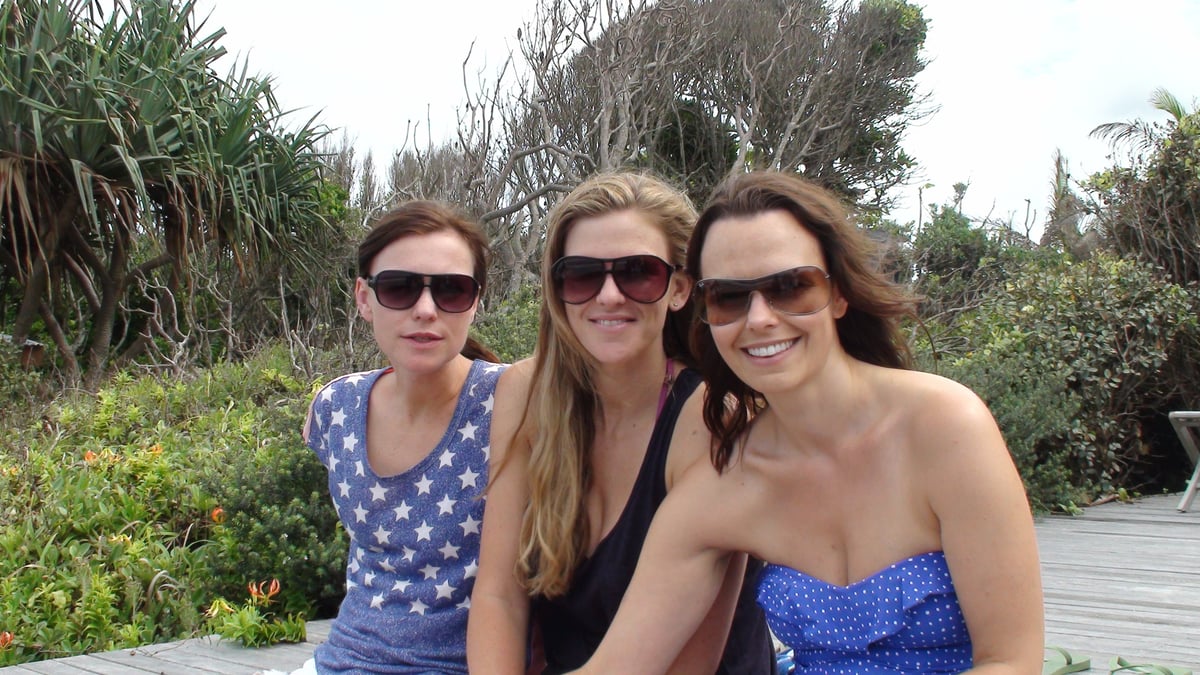 I look like I'm on holiday with friends. I am. But I'm also suffering an 11-day panic attack.
I look like I'm on holiday with friends. I am. But I'm also suffering an 11-day panic attack.
It took a little longer to realise how ever-present that feeling had been in the first place. Until then, anxiety hadn’t been with me always but it was so unpredictable and pervasive that it made my mental health and my general outlook on life feel fragile.
Any happiness I felt, was fleeting. I could never trust it.
This was around 10 years ago.
I didn’t know anyone back then who had anxiety - or so I thought. At first I just mentioned it in hushed tones and anguished text messages to friends.
Slowly, I began to realise how prevalent it is. And like any club you never wanted to join, it’s a shock to learn how many fellow members there are.
Still, I wasn’t ready to go public and there were a few reasons for this.
Sure, it took some time for me to process the experience of my panic attack, what it meant to suffer from anxiety but also, I’ll be honest, the stigma of taking medication.
I’m often asked how I find the ‘courage’ to write so candidly about personal experiences like miscarriage and anxiety but my secret is that it’s not courageous at all.
It’s self-serving. Partly, as a writer, I metabolise how I feel through writing.
The other part though is the need to know I’m a basic bitch and that whatever I’m going through...it’s not just me. There is such enormous relief in being unoriginal.
The benefit is circular. When I write or speak about something hard or embarrassing or vulnerable, the feedback is overwhelmingly “me too”. It always makes other people feel seen, heard and understood. And for me, well, hearing that other people have gone through the same thing makes me feel less like a freak.
It’s a virtuous circle of reassurance that we’re not as abnormal as we may fear.
For the past few years, I haven’t spoken much about anxiety because it hasn’t been an issue for me anymore. This is no accident.
I still diligently take my same dose of medication and I’ve never been tempted to reduce it or go off it, never once. I also supplement my meds with lifestyle factors that help enormously like daily exercise, routine and sleep.
Occasionally though, I get a breakthrough burst of anxiety. I guess you’d call it a panic attack because it’s sudden and intense and relatively quick - it lasts minutes or in some cases, a few hours.
This makes it different to the more chronic, generalised anxiety I used to experience; that was more just a lower level feeling of dread. The handful of panic attacks I’ve had over the past few years are always triggered by something specific, usually around my health or the health of someone I love.
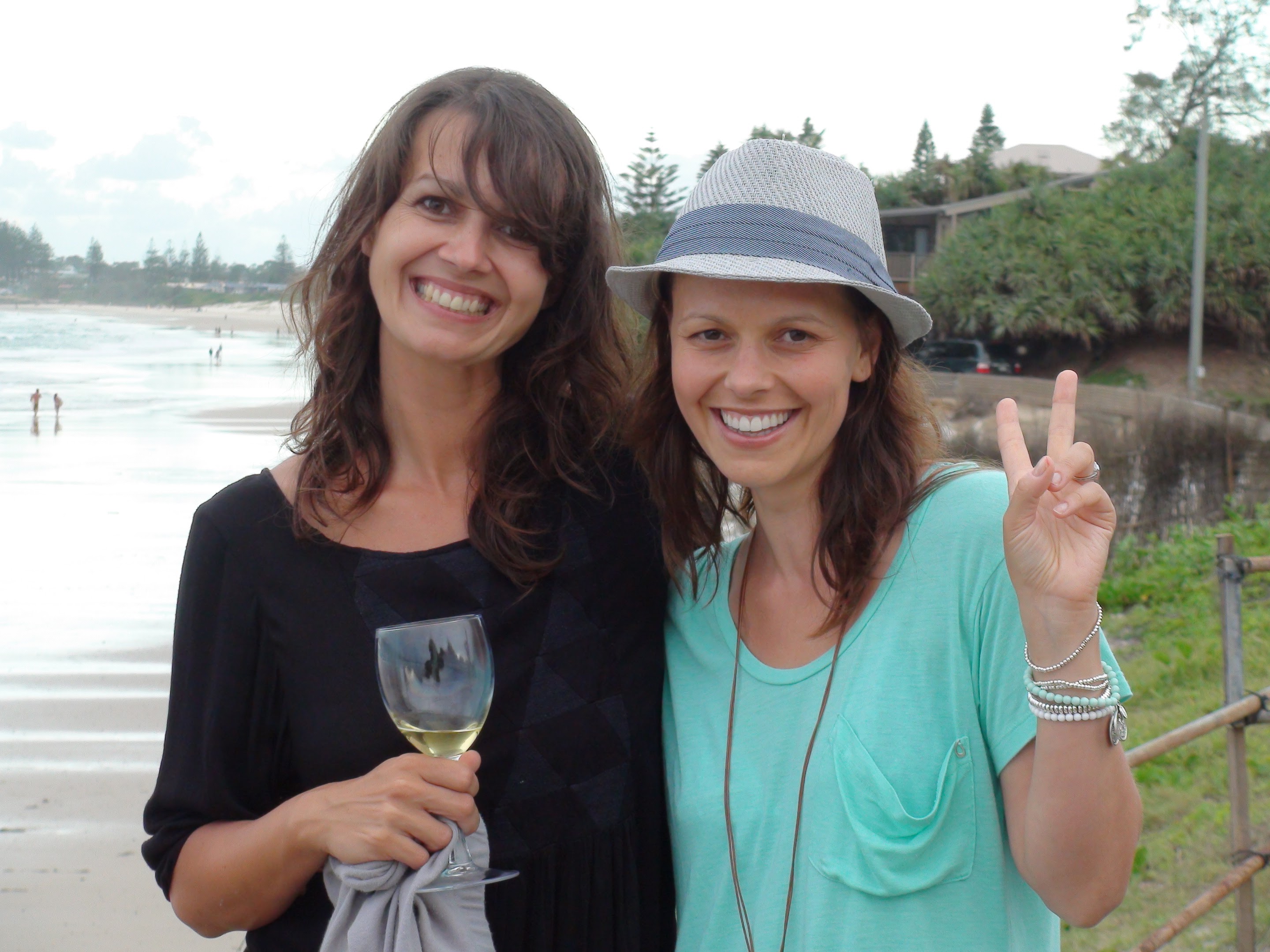 Days later, I was at the doctor, finally getting the help I needed.
Days later, I was at the doctor, finally getting the help I needed.During the first lockdown in 2020, I went for a routine ultrasound with my gynaecologist and she found an ovarian cyst. This is - I’ve since learned - a really normal thing and it usually resolves by itself. Good to keep an eye on it but nothing to be overly worried about.
My doctor tried her best to explain this to me at the time but all I could hear was that I was dying. “I just want you to remove my ovaries, I don’t need them, I can’t handle the stress of this” I pleaded with her as she looked at me with concern - not for my ovaries but for my mental health.
That panic attack took hours to subside and during that time, I was unable to take in any information despite the reassurances my doctor tried to give me. Sensibly, she refused to remove my ovaries and told me to come back in a few months for another scan.
I probably shouldn’t have driven home but I did and because I could barely function, I asked my husband to Google whether an ovarian cyst meant I was dying. He did what he knows to do, which is look at the facts and then present them to me with a mix of reassurance and humour that always calms me down. Also tea.
It took a long time for me to settle.
When you have anxiety - your body reacts as though you are under extreme and immediate threat. It floods your system with adrenaline even though you have absolutely no need in the real world for that surge of adrenaline. The unwanted surge feels disgusting and your body has no use for it so it just hangs around. You don’t need to flee. You don’t need to fight. The threat is coming from inside your head and it’s wildly overblown.
You’re not being chased by a man with an axe, you’re sitting quietly on the bus on your way to work or sitting quietly with a cup of tea. The disconnect is hard to describe.
It is, to put it mildly, a head fuck.
Speaking to my Mum afterwards, she surprised me with a theory about why I react so badly when I have to get any kind of health check, particularly any kind of imaging or scan.
“Darling, I think it’s because of what happened to you when you lost that pregnancy so late,” she said over the phone. “I think maybe you have a sort of PTSD because of that.”
When she said that, I immediately felt a giant exhalation of understanding. Maybe I wasn’t crazy. Maybe there was a reason.
More than 20 years ago, during a routine ultrasound halfway through my second pregnancy, I was laughing and joking with my husband as the sonographer scanned my big pregnant tummy when she interrupted us to gently explain that she couldn’t find a heartbeat. Our baby had died and I hadn’t even known.
My mother was right. Some pretty deep trauma was embedded deep inside me that day. Terrible news on an ordinary day. The belief that bad things happen during normal scans.
Scan-xiety is a term I’ve learned - cancer patients and survivors talk of it. The very real fear you have of getting very bad news during or after a health scan. It can be crippling. And even when the news is good, it can be hard to reconcile that with what you’ve been thinking.
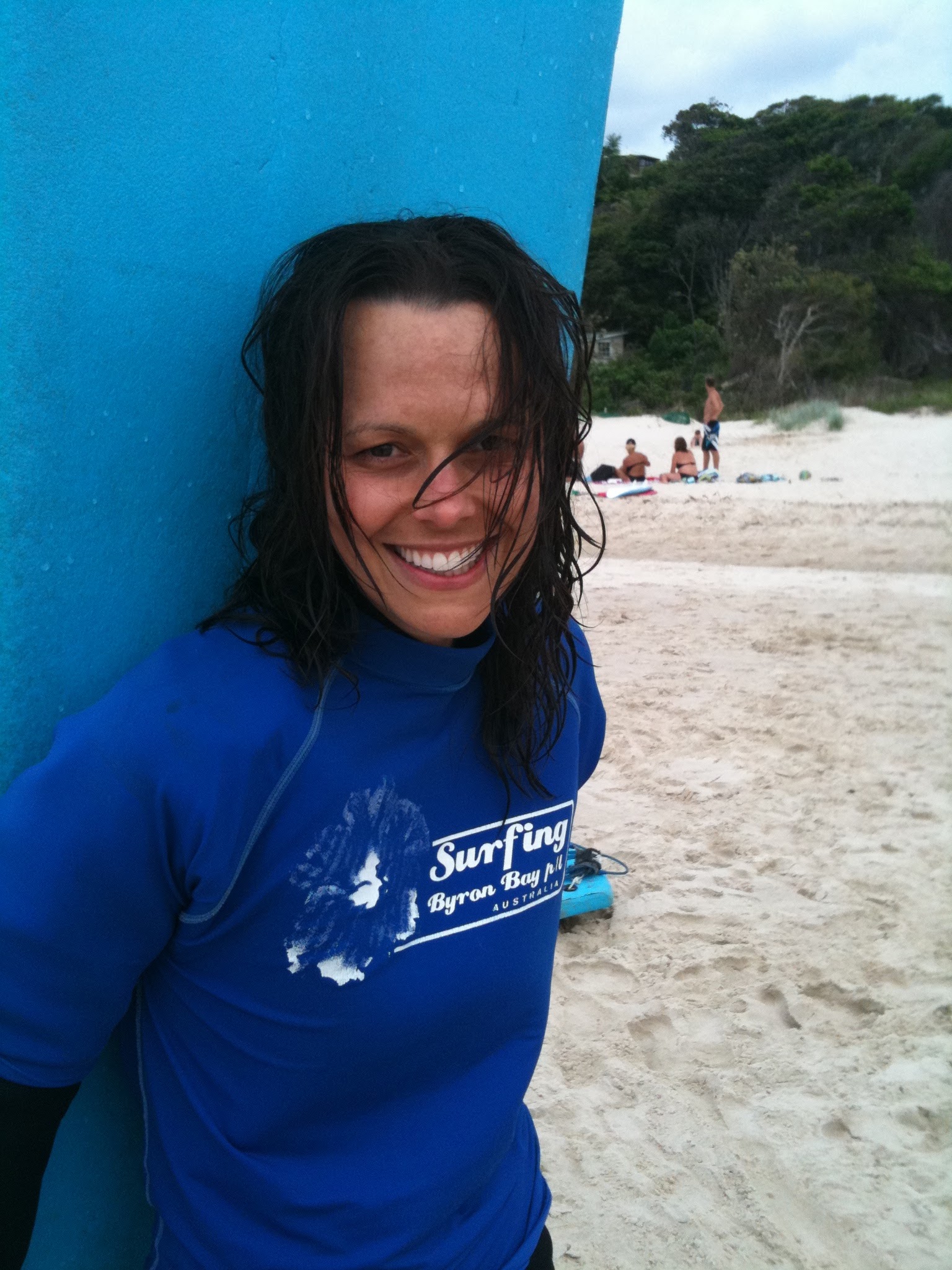
So back to my breasts.
I have a family history of breast cancer - both grandmothers had it and one died from it - so I’m right to be alert to it. I’ve had the genetic testing for the breast cancer gene and I didn’t have it but all that means is that I have exactly the same risk of developing breast cancer as any other woman with breasts.
Because of my history, I’ve been having annual mammograms since I turned 40 (talk to your doctor about how often you should have your breasts checked, this is just my story).
I am diligent about getting my mammograms but I also dread it. Like, deeply, deeply dread it. In a way, it feels like preparing to go into battle, with my own head.
I have no real sense of how women without anxiety feel about their boobs and about getting them checked. I asked one of my friends who has had a few mammograms including one after finding a lump and she said she feels apprehensive but always assumes everything will be fine.
When she was getting checked out for the lump, she said she kept apologising for wasting everyone’s time.
I love that. It’s inconceivable to me.
For the past couple of years when it’s been mammogram day (and when I had to go for my follow-up ovarian scan), I’ve had half a valium at the suggestion of my Mum. It’s helped a lot.
But last week when my mammogram was due, I forgot. Initially, I thought I’d be OK.
Until the doctor told me “there are a couple of things we’d like to check out a bit more closely - something in each breast - so we’re going to do some more pictures”.
If you had been looking at me in that moment you would have seen the colour drain out of my face and my eyes widen.
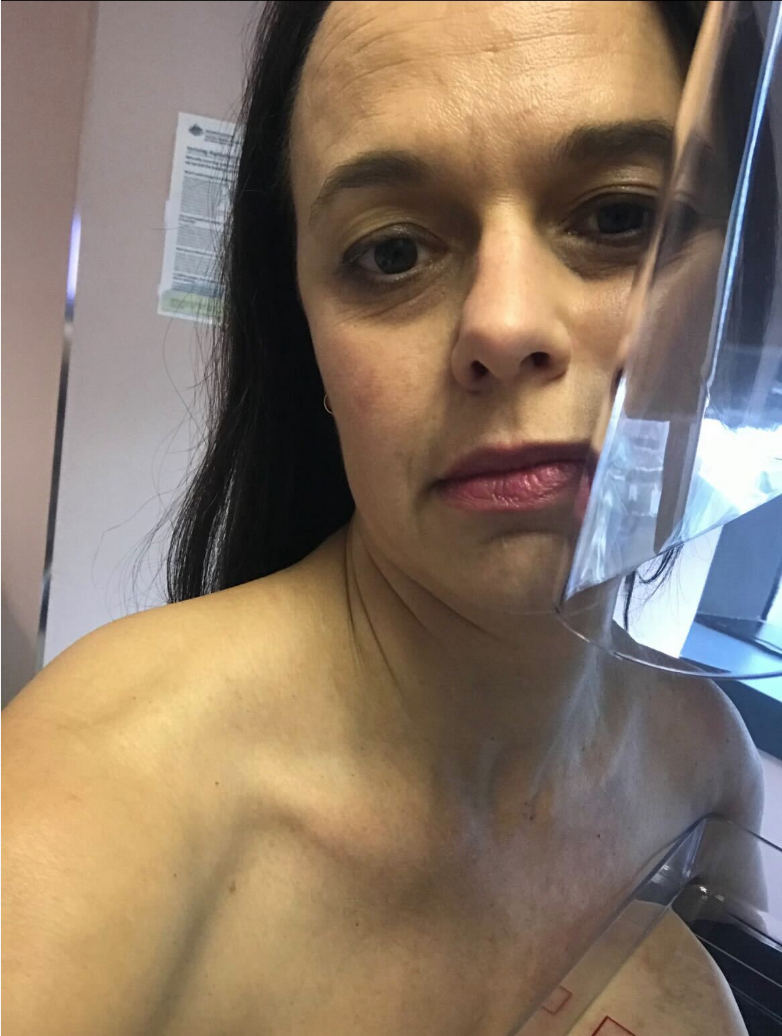
This same thing happened to me two years ago and my reaction was the same. Like the feeling you get when you’re walking up stairs and lose your footing and your whole body tenses up while your stomach feels like it’s falling through the floor. But instead of going for a split second until you find the step and keep going, it continues…….and it’s excruciating.
As I waited for my ultrasound, I texted my husband.
“They found something. Two things. I need another mammogram. I can’t breathe.”
He tried to call.
I declined his call because I knew I would cry if I heard his voice. The waiting room was crowded and the energy in there was heavy. I didn’t want to make anyone feel bad by bursting into tears. My instinct was to make myself as small and inconspicuous as possible. I wanted to disappear in that moment.
He texted me. “Babe, it’s going to be fine. They’re a hammer and their job is to look for a nail. Sometimes they find other things - screws and keys and everything that isn’t a nail. Because they can’t afford to miss the nail so they need to follow every single small lead. I know you know this.”
But I didn’t know this. Not even a little bit. I had honestly never thought of it like that.
I had assumed that there were only two options - totally fine or cancer. But breast tissue is apparently very complex and lots of things can happen in there. Cysts, fatty deposits, lumps, lymph nodes…..none of them necessarily sinister but all requiring investigation to rule out further treatment.
Just because you have to get more pictures or the doctor draws on your breast with texta where she wants the sonographer to look at more closely, all these things are very normal and hugely common. It’s nothing to panic about and it doesn’t necessarily mean you have cancer.
Did you know this? I didn’t.
Or if this information was stored somewhere in my brain, my anxiety deleted it.
In that period of panic, I couldn’t take in any information. I never can.
It’s like asking someone who is running away from a lion to listen to your seven-step instructions about how to locate the exit. I’m trying to avoid getting eaten by a fucking lion thanks. I don’t have the bandwidth to think about which direction North is.
When you are experiencing anxiety or panic, you are not your best self.
This is a wild understatement. And what people find hard to understand is that you’re not just scared of a particular outcome, you are convinced that outcome has already occurred and your body is reacting as though you’ve just been told you’re dying.
Your head has jumped ahead to thinking about how you’re going to break the news to your loved ones and how they’ll react and who will speak at your funeral and whether or not you’ll do a social media post about it.
It’s more exhausting and disorienting than you can possibly imagine.
And even if and when you’re fortunate enough to get good news - the lump they found was a cyst or further tests have ruled out your worst fears - your mind and body can take time to catch up to the imagined reality they were already living.
I didn’t feel like myself for a couple of days.
And perversely, I was irritated when my husband was like, “Excellent! It’s all good!” because I was like, “Yes, it’s good and that’s great but I haven’t yet adjusted to that part and it doesn’t mean my panic attack didn’t happen.”
God, I’m hard to live with.
Is there a moral to this story? If there is, it’s probably this: health anxiety is real. It’s not just ‘being dramatic’ or ‘being a hypochondriac’. For those of us who suffer from it, it can be crippling, unpredictable and exhausting. Like any mental health condition, it requires understanding, kindness towards yourself and the ability to try and recognise your triggers and formulate a game plan in advance. I know for a fact that what’s in your head during a bout of health anxiety is far worse when it’s ricocheting around in there alone and unspoken. Telling someone helps. Preferably someone who knows your vulnerability and who can gently but firmly coax you back to a more grounded way of thinking. Laughter helps.
My friend who is a breast physician has told me that she’s placed an alert under my name in the mastectomy registry so she will be notified if I try to book in for a preventative mastectomy as I’ve threatened to do in my darker moments.
I don’t know if that’s even true that you can do that, but it made me laugh. And that helped.
Listen to Mia discuss her mammogram on a subscriber-exclusive episode of Mamamia Out Loud.
Feature image: Mamamia/supplied

